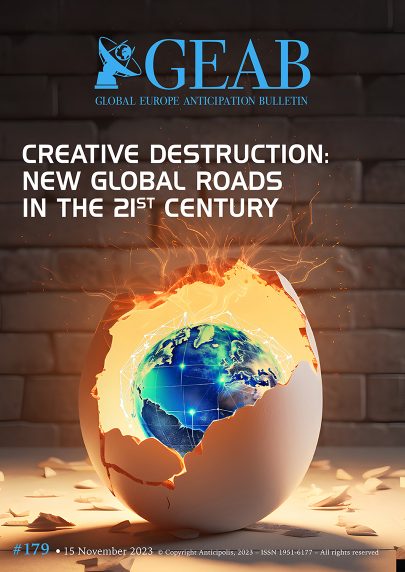GEAB 179
The conflict will be resolved in the short term and will allow the region to integrate and open up to all its potential. This is what we presented last month, in line with our work on the future of the Middle East over the last seventeen years.
This scenario stays solid, we think. However, it is quite clear that there are risks of derailing due to the more or less controlled process currently underway. What kind of scenario would such a loss of control send us into? This is the subject of this addendum to last month’s update on the situation.
Login

Anticipation means always looking a little further ahead and striving to think the unthinkable. So, when all the signs point to destruction, to collapse, we need to remain clear-headed so [...]
In our October issue, the GEAB team anticipated Ukraine's medium-term development: As a result, Ukraine's integration into the EU seems rather hypothetical, as it would have to be supported by [...]
The reshaping of the world is reflected in the evolution of trade routes. Global merchandise trade is expected to reach $32.6 billion in 2030, with Asia, Africa and the Middle [...]
With the subprime crisis (2007/2009), the rescue plans for banks and financial institutions reached such dizzying heights that we did not expect to see them again any time soon. Since [...]
Our team is continuing to research and reflect on the impact of artificial intelligence (AI) on our future societies. In doing so, we are seeking to gather a wealth of [...]
Mihai Nadin, Emeritus Ashbel Smith University Professor, University of Texas at Dallas. His career combines engineering, mathematics, digital technology, philosophy, semiotics, theory of mind, and anticipatory systems. He holds advanced [...]
Eurozone: State bankruptcies on the horizon? Stagflation, recession, rising credit costs, unemployment... the negative signals are multiplying for the eurozone economies. As the end of the year approaches, these indicators [...]

Comments